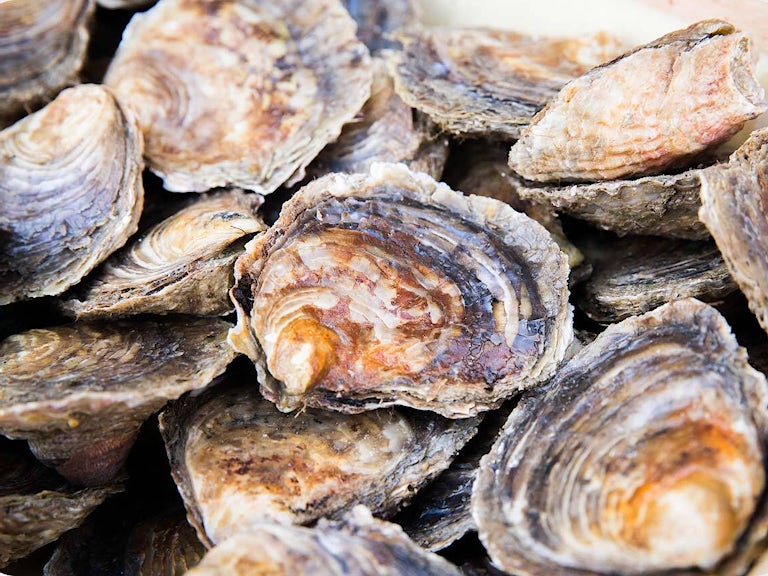The Native Oyster Network
National marine network
A network dedicated to restoring Britain’s native oyster reefs, which were once common on our coastline.

Native oyster reefs (Ostrea edulis) were once common around the UK’s coastline. However, populations have declined by 95% since the mid-19th Century mainly due to overexploitation, and their natural recovery is severely limited by pollution, disease, habitat loss and the introduction of non-native species.
Native oyster reefs are a vital marine ecosystem providing a range of ecosystem services including:
Improving water quality
Just one adult native oysters can filter over 140 litres of water per day removing suspended matter and excess nutrients (e.g. nitrogen). This improves environmental conditions for other species and nearby habitats such as seagrass meadows, and can help prevent harmful algal blooms.
Increasing biodiversity
Native oyster reefs are structurally complex meaning they have lots of nooks and crannies for a host of different marine species to live in.
Providing a nursery habitat for fish
Native oyster reefs provide a valuable refuge for juvenile fish protecting them from predation and providing them with plenty of food.
Cultural and heritage value
Native oysters were once a cheap source of protein and historically formed a large part of British diets. As a result, references to their cultivation, harvesting and eating can be found dating back to as early as Roman times.
As a result, groups around the UK and Europe are working hard to bring native oyster habitat back. The Native Oyster Network was set up in 2017 to bring together academics, government, conservationists, oystermen and NGOs, and has helped to cultivate a number of native oyster restoration projects around the UK. Using a collaborative approach, the network aims to improve awareness of the value of the native oyster, both environmentally and culturally, and also facilitate the sharing of information and experiences relating to native oyster restoration. Head over to the Native Oyster Network to find out more about the work being done to restore this valuable marine ecosystem.
Useful resources
Projects

Solent Oyster Restoration Project
Restoring native oyster beds and the associated benefits that they bring through seabed restoration, broodstock cages and community engagement

Essex Native Oyster Restoration Initiative (ENORI)
Recovering native oysters in the Blackwater, Crouch, Roach and Colne Estuaries

The Humber Estuary
Developing a multi-species aquaculture site including; mussels, razor clams, seaweed and native oysters.

Restoration Forth
Restoration Forth is working to restore native oyster beds and seagrass meadows in the Firth of Forth, Scotland.

The Dornoch Environmental Enhancement Project (DEEP)
Restoring oyster reefs through reintroductions and use of waste shell from the scallop and mussel industry in the Firth.

The Wales Native Oyster Restoration Project
Researching the establishment and monitoring of a series of oyster restoration plots.

The Rewilding Network
The Rewilding Network is the go-to place for projects across Britain to connect, share and make rewilding happen on land and sea.
Want to get involved?
If you’re interested in learning more about how to get involved in these exciting projects, visit their website.